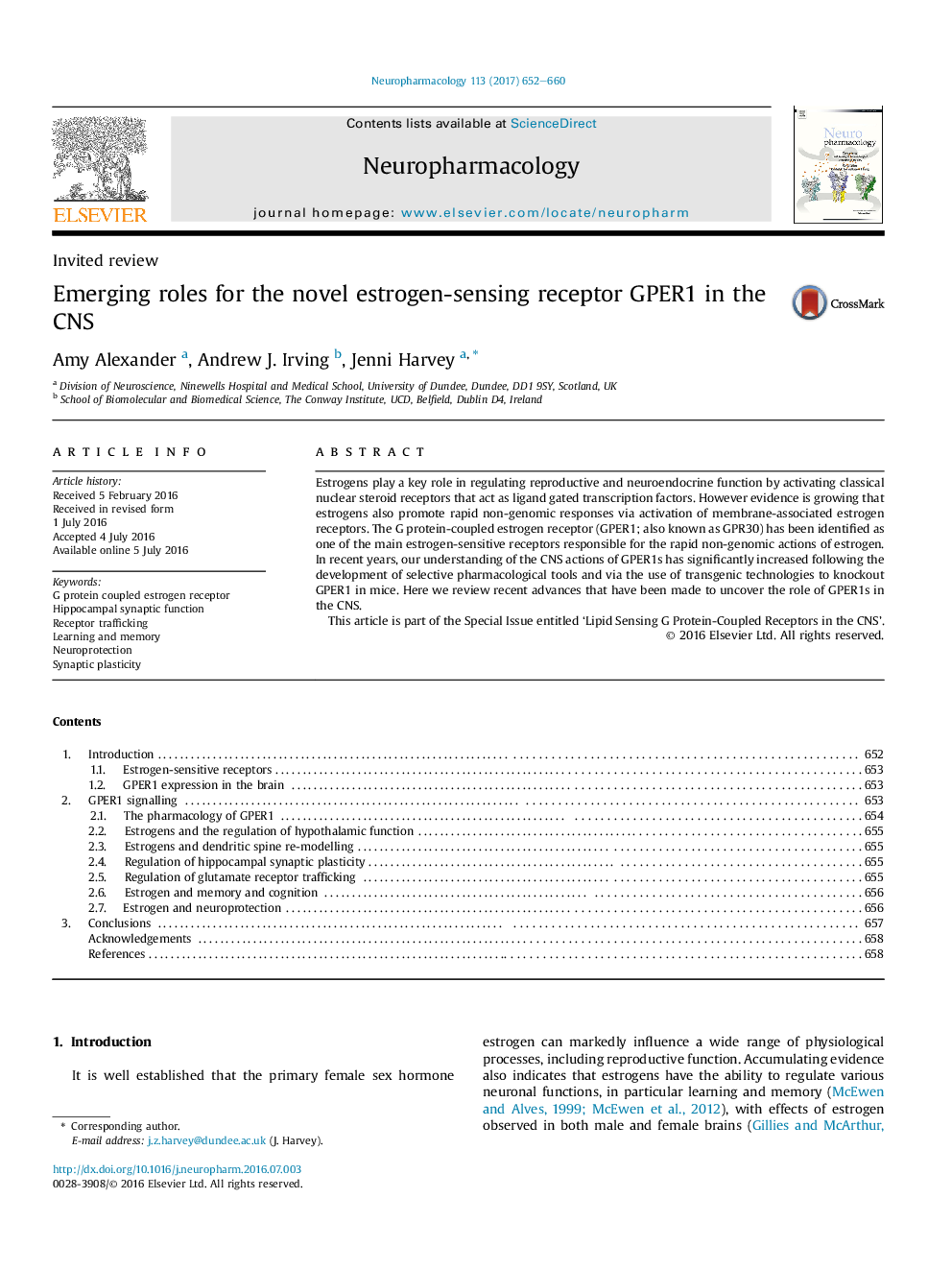| Article ID | Journal | Published Year | Pages | File Type |
|---|---|---|---|---|
| 5549040 | Neuropharmacology | 2017 | 9 Pages |
â¢GPER1s are estrogen-sensitive receptors mediating the rapid non-genomic actions of estrogen.â¢GPER1s are enriched in the brain and is highly expressed at synapses.â¢GPER1s rapidly regulate hippocampal dendritic morphology and synaptic plasticity.â¢Higher brain functions such as learning and memory are influenced by GPER1s.â¢The neuroprotective actions of estrogens are linked to GPER1 activation.
Estrogens play a key role in regulating reproductive and neuroendocrine function by activating classical nuclear steroid receptors that act as ligand gated transcription factors. However evidence is growing that estrogens also promote rapid non-genomic responses via activation of membrane-associated estrogen receptors. The G protein-coupled estrogen receptor (GPER1; also known as GPR30) has been identified as one of the main estrogen-sensitive receptors responsible for the rapid non-genomic actions of estrogen. In recent years, our understanding of the CNS actions of GPER1s has significantly increased following the development of selective pharmacological tools and via the use of transgenic technologies to knockout GPER1 in mice. Here we review recent advances that have been made to uncover the role of GPER1s in the CNS.This article is part of the Special Issue entitled 'Lipid Sensing G Protein-Coupled Receptors in the CNS'.
